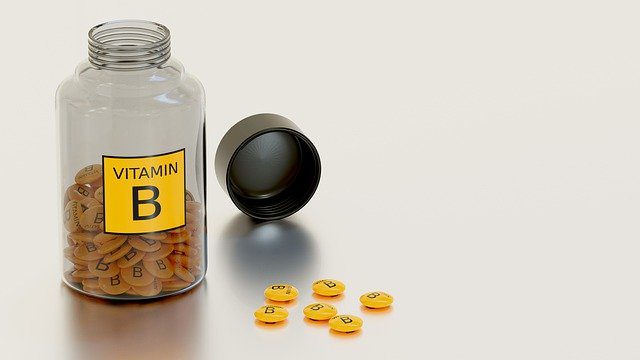We all know that we need vitamin B in our diets to stay healthy, but did you know that there are four different types of this vitamin? And each of them has a specific function your body needs. This article will take you through the different types of these vitamins and their functions in your body.
Vitamin B deficiency is more likely to happen in pregnant women because many hormonal changes occur during this time. It is estimated that 70 percent of pregnant women do not get enough Vitamin B and their unborn baby. This is why B Vitamins are also an essential woman vitamin supplement during this period.
The following is what you need to know about vitamin B, how it’s dangerous when deficient, and how to prevent or reverse a deficiency.
What is Vitamin B?
Vitamin B is a general term for eight different water-soluble vitamins, including thiamine (B1), riboflavin (B2), niacin (B3), pantothenic acid (B5), pyridoxine hydrochloride(B6), biotin, folic acid, and cobalamin.
The Four Basic Types of Vitamin B
- Vitamin B1 (thiamine) helps the body convert food into energy and is found in cereal grains, legumes, pork, and yeast.
- The next type of B vitamin is called folate, which helps make DNA cells and red blood cells. Folate can be found in vegetables like spinach and broccoli and fruits such as oranges or apricots.
- There’s also niacin which helps maintain skin health by keeping the skin looking young and smooth while also helping regulate cholesterol levels. Niacin can be found in lean meats, whole grains, and as an extract from yeast.
- Lastly, vitamin B3 helps break down fat to produce energy in the body and can be found in fish, meat, and peanuts.
The vitamin is essential for red blood cell production, nerve function, and brain development in fetuses. It’s needed to convert food into energy as well. It also plays a vital role in the nervous system of adults by helping cells communicate with each other via neurotransmitters like serotonin and dopamine.
These vitamins help your body metabolize carbohydrates, proteins, and fats. This makes Vitamin B one of the vitamins essential for weight loss.

Causes of Vitamin B Deficiency?
A vitamin B deficiency can be caused by the following:
- Eating an unhealthy diet that is high in processed carbohydrates and low in foods containing protein or fat.
- A diet low in fruits and vegetables also reduces the number of vitamins that can be absorbed.
- Smoking due to nicotine reduces the absorption of folic acid.
- Alcohol abuse, which prevents the liver from processing folic acid.
- Aging is due to the body’s inability to absorb nutrients such as thiamine and Vitamin B12.
- Stomach or bowel surgery reduces the amount of vitamin B12 that can be absorbed.
- Pregnancy or breastfeeding due to the increased need for folic acid.
Signs and Symptoms of Vitamin B Deficiency?
The most common symptoms of this are depression and fatigue. This is because your body can’t absorb Vitamin B properly, which leads to the lack of these in your body. If you do not get enough Vitamin B from the food you eat or from your natural-made multivitamin supplements, you may have a deficiency.
Vitamin B deficiency can present itself in a variety of different ways.
- Vitamin B deficiency can cause anemia, as well as fatigue and lethargy.
- Nerves can be affected, leading to numbness in the hands and feet.
- Skin can also be affected by Vitamin B deficiencies which will result in acne or eczema.
- Lack of Vitamin B leads to irritability, depression, anxiety, and mania.
- Vitamin B deficiency can lead to loss of muscle coordination, as well as restlessness and confusion.
- A Vitamin B12 deficiency can cause sore red patches on your skin or mouth ulcers that won’t heal. B12 liquid is also one of the vitamins that help with concentration. Deficiency also leads to less energy, poor attention, and slow learning abilities. Even dogs need B12.
These are some of the common symptoms of a vitamin deficiency, but not everyone will experience all of these symptoms.
Consequences of Vitamin B Deficiency
While the symptoms manifested by vitamin deficiencies are obvious, what is not so obvious is how serious they can be. They can cause life-threatening anemia and nerve damage leading to loss of motor skills or even paralysis. In severe cases, they can cause heart disease, liver failure, and neurological disorders. If the deficiency is left untreated for a prolonged period, it can eventually lead to organ damage or death.
Children deficient in vitamin B often suffer from problems like anemia, stunted growth, and cognitive impairment, which could all improve over time with more supplementation!
What Should You Do?
The signs and symptoms of a vitamin deficiency are often very subtle, so it’s up to you or your physician to be vigilant for any changes in your health. If you experience any of the symptoms mentioned, then speak with your doctor as soon as possible. Your doctor may prescribe vitamin B complex injection, tablet, or syrup for you. Consider integrating SmarterVitamins into your routine to support your overall nutritional needs.
If you are a vegan, vegetarian, or on another type of restricted diet, your diet must be carefully planned to avoid missing any essential vitamins. Vitamin B supplements can also be useful for anyone who has trouble absorbing fat in the digestive tract. Vegan-friendly vitamin supplements such as B12 drops are available for vegetarians and people who have gastrointestinal conditions.

Elderly people are especially prone to Vitamin B deficiency, so they must speak with their doctor about how best to correct this problem. Dietary changes are also recommended for older adults (65+) and younger people whose bodies don’t absorb Vitamin B.
If your doctor prescribes any vitamin supplement for you, make sure you adhere to instructions given to you by the doctor and ask him questions whenever necessary. Meanwhile, if you are using the Vitamin b12 liquid supplement, be sure to follow the instructions on the package properly or as prescribed by your doctor.
Conclusion
It’s important to know what you’re dealing with if you think there is a chance that you have or are developing a vitamin B deficiency. Do your research, get it checked out by a doctor, and take the necessary steps to ensure that you’re getting enough of this essential nutrient for optimal health.
Vitamin B supplements can also help if there is trouble absorbing fat through the digestive tract.
Featured Image by rawpixel.com














